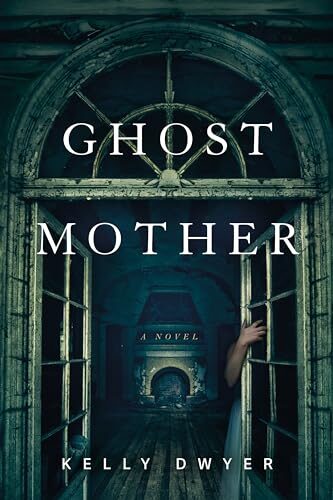
“Ghost Mother” by Kelly Dwyer is a haunting and emotional tale that delves into themes of infertility, mental illness, and a deteriorating marriage. The story revolves around a haunted house, but it is much more than a typical ghost story. The main character’s personal struggles and the supernatural elements intertwine, creating a gripping narrative that explores deep emotional and psychological issues1.
Main Character
The main character in “Ghost Mother” by Kelly Dwyer is Maggie. She is a woman grappling with infertility and the strain it places on her marriage. Her emotional and psychological struggles are central to the story, and her experiences with the supernatural elements in the haunted house add depth to her character.
Central Conflict
The central conflict in “Ghost Mother” revolves around Maggie’s struggle with infertility and the impact it has on her mental health and marriage. This personal turmoil is compounded by the supernatural occurrences in the haunted house,. The story explores how these elements intertwine, creating a tense and emotionally charged narrative.
Key Events
Here are some key events in “Ghost Mother” by Kelly Dwyer:
- Maggie’s Struggle with Infertility: Maggie’s ongoing battle with infertility is a major driving force in the story, affecting her mental health and her relationship with her husband.
- Supernatural Occurrences: Strange and unsettling events begin to happen in the house, which Maggie initially dismisses but gradually becomes more disturbed by.
- Marital Strain: The stress of infertility and the haunting experiences put a significant strain on Maggie’s marriage, leading to intense emotional conflicts.
- Confrontation with the Past: Maggie is forced to confront her past traumas and unresolved issues, which are symbolized by the ghostly presence in the house.
- Resolution: The story builds towards a resolution where Maggie must find a way to reconcile with her past and present challenges, both supernatural and personal.
Theme
The main themes in “Ghost Mother” by Kelly Dwyer include:
- Infertility and Motherhood: The book deeply explores the emotional and psychological impact of infertility on Maggie, the protagonist, and her desire to become a mother.
- Mental Health: Maggie’s struggle with mental health issues is a central theme, highlighting the challenges and stigmas associated with mental illness.
- Marriage and Relationships: The strain on Maggie’s marriage due to infertility and her mental health struggles is a significant aspect of the story.
- Supernatural and Reality: The interplay between the supernatural occurrences in the haunted house and Maggie’s personal struggles serves as a metaphor for her internal conflicts.
Narrative Style
The narrative style of “Ghost Mother” by Kelly Dwyer is characterized by its literary flair and psychological depth. The story is told with a blend of gothic horror and psychological suspense, creating a haunting and emotionally charged atmosphere. Dwyer uses a first-person perspective, allowing readers to deeply connect with Maggie’s internal struggles and experiences.
Author Point Of View
Kelly Dwyer employs a first-person point of view in “Ghost Mother”1. This perspective allows readers to intimately experience the protagonist, Maggie’s, emotional and psychological struggles. The first-person narration effectively blurs the lines between reality and the supernatural, enhancing the eerie and suspenseful atmosphere of the story1.
Psychological Impact
The psychological impact of “Ghost Mother” by Kelly Dwyer is profound, as it delves into the emotional and mental struggles of the protagonist, Maggie. Here are some key aspects:
- Infertility and Mental Health: Maggie’s battle with infertility leads to significant emotional distress, affecting her self-esteem and mental well-being. This struggle is a central theme, highlighting the psychological toll of infertility.
- Marital Strain: The stress of infertility and the supernatural occurrences in the house exacerbate tensions in Maggie’s marriage, leading to emotional conflicts and a sense of isolation.
- Supernatural Elements: The haunting experiences in the house serve as a metaphor for Maggie’s internal battles, blurring the lines between reality and the supernatural. This adds to the psychological tension and creates a sense of unease.
- This confrontation is crucial for her psychological healing and growth.
Personal Reflection
Reflecting on “Ghost Mother” by Kelly Dwyer, the book offers a deep and haunting exploration of personal struggles and supernatural elements. Maggie’s journey through infertility and mental health challenges is portrayed with raw emotion and psychological depth. The supernatural occurrences in the haunted house serve as a powerful metaphor for her internal battles, making the story both eerie and profoundly moving.
The narrative style, with its rich detail and atmospheric writing, draws readers into Maggie’s world, allowing them to experience her fears, hopes, and resilience firsthand. The book’s themes of motherhood, mental health, and the impact of unresolved past traumas resonate deeply, offering a poignant reflection on the human condition.
About the Author
Kelly Dwyer is the author of “Ghost Mother”, a psychological ghost story published by Union Square & Co. in August 20241. She has also written two other novels, “The Tracks of Angels” and “Self-Portrait with Ghosts”2.
Dwyer is a graduate of the Iowa Writers’ Workshop and Oberlin College1. She grew up in San Pedro, California, and now divides her time between Baraboo, Wisconsin, and Los Angeles1. Her writing often explores themes of psychological depth and supernatural elements, blending reality with the eerie and unsettling.
Read More eBook
Is She Really Going Out with Him eBook Summary
Counting Miracles by Nicholas Sparks eBooks Summary

